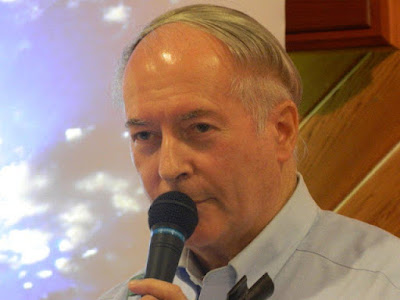BLIND
Now as Jesus passed by, He saw a man who was blind from birth.
And His disciples asked Him, saying, “Rabbi, who sinned,
this man or his parents, that he was born blind?”
Jesus answered, “Neither this man nor his parents sinned,
but that the works of God should be revealed in him.
I must work the works of Him who sent Me while it is day;
the night is coming when no one can work.”
(John 9:1-4)
Just before this event took place, Jesus had already been having difficulties with the Jewish leaders because of His actions and beliefs. Now He went against the belief that most, if not all, handicaps came about as a result of some indiscretion, either on the part of the individual or their parents. Furthermore, He went on to heal the man of his blindness, much to the chagrin of the Jewish leaders.
Their response to this event was not to examine what had happened in a careful manner but to say that: “this Man is a sinner” (John 9:24) referring to Jesus. The blind man replied: “Whether He is a sinner or not I do not know. One thing I know: that though I was blind, now I see” (John 9:25).
It is a tragedy for anyone to be handicapped in a way that prevents that person from fulfilling their true potential. And that handicap could be physical, mental, emotional, or spiritual in nature. How often do we still tend to find some fault with the person or the parents or with the system when such happens? It could be something that was taken during pregnancy, or something that was done, or a virus, or a medication; and although those may undoubtedly play a part, perhaps more that we realize, it may be as Jesus said: “that the works of God should be revealed in him” (John 9:3).
Perhaps this shows why handicapped people such as Helen Keller, born deaf and blind, are eventually able to live such a miraculous life. Nicholas Vujicic, born without limbs, has become a world renowned evangelist and motivational speaker. Some people may even have chosen, before they were born, to have a handicap. Drs. Lundahl and Widdison, in their book, The Eternal Journey, report that there had been those who had such near-death experiences. During the time that they were on the other side, they met their children, still yet to be born, who chose to be born with some handicap.* Is that why Jesus said to the Jewish leaders that the man was blind so “that the works of God should be revealed in him” (John 9:3)?
But the real blindness seemed to be not in the man born that way but in those leaders who refused to accept the reality of what they had witnessed. The blind man himself did not understand all that had happened, but he accepted the fact that his life had changed. He said: “…you do not know where He is from; yet He has opened my eyes!” (John 9:30) He went on to say: “…if anyone is a worshipper of God and does His will, He hears him” (John 9:31).
But the Pharisees haughty replied: “You were completely born in sins, and [are] teaching us?”(John 9:34) As a result “they cast him [the blind man] out”(John 9:34); in effect excommunicating him. Jesus replied to the Pharisees:
“For judgement I have come into this world,
that those who do not see may see,
and those who see may be made blind.”
Then some of the Pharisees who were with Him heard these words,
and said to Him, “Are we blind also?”
Jesus said to them, “If you were blind [not aware of the law],
you would have no sin; but now you say ‘We see (know the law).’
Therefore your sin remains”(John 9:41)
It has been said: “As much of heaven is visible as we have eyes to see.”**
It has also been said that: “There are none so blind as those who will not see.”***
Likewise, it has been said that: “You will never be able to make some understand or accept something if you are too stubborn or unwilling to learn or notice.” ***
In some ways we are all Pharisees because of what we fail to notice and do not try to understand.
For since the creation of the world His invisible attributes are clearly seen,
being understood by the things that are made, even His eternal power
and Godhead, so that they are without excuse.”
(Romans 1:20)
To some extent, blindness affects us all, and it is something we should all seriously think about.
*From The Eternal Journey Chapter 3 by Craig R Lundahl, Ph.D., chairman emeritus Dept of Social Sciences and professor emeritus Western New Mexico University; and Harold Widdison, professor of medical sociology Northern Arizona University
** Quote from Ralph Waldo Emerson American poet (1803-1882)
***FromThe FreeDictionary by Farlex


No comments:
Post a Comment